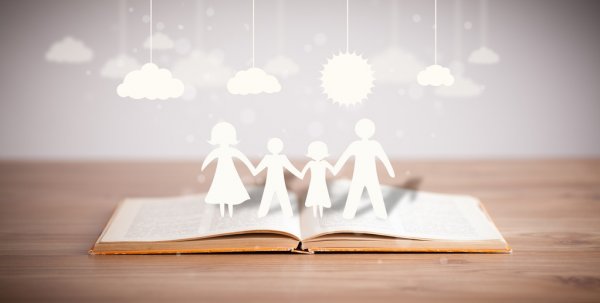How to Create Realistic Characters
Today’s guest post is by Laura Sherman.
Whenever you write a novel, the success of the project depends upon your ability to craft believable, realistic characters. When done correctly, your readers will be drawn to the people in your book. They will empathize with and relate to each individual you portray and might just shed a tear when the book is finished.
As a writer, you know how important it is to do research. After all, you must know about the environment, relevant history, as well as the various topics discussed in your book. These are crucial to creating a realistic setting and background.
What you might not realize is that you also need to research the personalities involved if you wish to create truly three-dimensional characters. That’s the only way to really understand the nuances and characteristics of each individual in your novel. You have to work out how each character will develop throughout the story and who they will become by the end. And that development needs to resonate with your readers.
Keeping It Real for Your Readers
Meeting a character in a novel is a bit like meeting someone for the first time in life. I’d compare it to a good blind date. Think about it. When you first get to know a new person and hit it off, you see them in a certain light, one that is a tad rosy. That person can appear to be almost perfect.
Someone new in your life will go out of his way not to display negative emotions. No angry outbursts, no overly dramatic scenes, no whiney arguments. That’s because he isn’t comfortable enough to display any flaw in case that causes you to bolt.
Over time, as you continue to develop a relationship with that man, you’ll start to see a few faults peek out. They have imperfections. Yet you still like them, sometimes even more than before. They are real.
As an author, if you want to create realistic characters for your book, you must write as if you’ve known them for years. Skip the honeymoon phase. It’s overrated. Fast forward a bit and let them reveal their idiosyncrasies. Let the reader see the real person.
No reader will enjoy reading about flat, boring, “perfect” people. Remember, bad guys aren’t always bad, and good guys are rarely saints. People have a lot of gray areas. Give them balance.
Communicate with Dialogue
Even with your eyes closed, you can sometimes pick out who said what just by the way they speak. The way a person communicates is a bit like his signature; the way a person signs his name reveals his individuality, his personality. It’s the same with communication.
Think of the people in your life that you know really well. Don’t they have unique ways of saying things? Maybe they have particular catchphrases. Or perhaps they mispronounce words in an endearing way.
Heck, some of my friends make up words on a regular basis.
In a novel you can really get a feel for a character’s personality through her dialogue. When it’s done well, it’s almost as if you’re overhearing a conversation happening right next to you. That’s the point when a reader gets lost in the pages of a good book.
Have you ever read a passage and actually forgotten that you were reading? I know I have.
As a writer, when I’m in the zone, when I know and understand my characters, it feels as if I’m a fly on the wall. I’m there, just listening in to the conversation. They speak; I write. I’m basically just a stenographer.
It’s that simple and that easy.
Friends Have a Unique Dynamic
In the real world, when two close friends get together, their exchange sometimes becomes its own language. Someone on the outside might have trouble understanding all the inside jokes the two friends have created together over the years.
For instance, my youngest daughter calls her older sister “Komodo” and warns her not to eat the “water buffalo.” This is because my teen is obsessed with Komodo dragons and will pretend that she’s hungry and plans to eat the humans in the area. Overhearing this conversation without context would be confusing, I’m sure.
As a writer, it’s your job (and pleasure) to create that realistic dialogue between close friends. Having said that, it’s important not to lose your readers. No one likes to be on the outside of an inside joke. No, they must get your characters well enough to understand the snippets of snappy dialogue you provide.
Sometimes you can use slang from another country to make the dialogue more realistic. For instance, if your character is German, he might say “Gesundheit!” (meaning “good health”) instead of “God bless you!” when someone sneezes. Or if you’re creating another world for a science-fiction novel, you might need to develop new words so that the reader becomes immersed in your book’s universe.
One of the best examples of this was when the characters in Battlestar Galactica used “frak” to communicate a popular swear word. It’s brilliant, because we all understood what they meant, but it helped the viewers know they weren’t in Kansas anymore (not even close). The writers introduced us to a new word, and it has become part of our culture. And, yes, most schools forbid its use as they would any other swear word.
Draw from Life
The best way to write detailed actions, descriptions, and dialogue for a character is to observe how people behave. Take notes. I mean literally take notes! I recommend that you carry a notepad with you wherever you go so that you can jot down observations.
People are fascinating—especially when they think no one is looking!
Make sure to notice how people interact, particularly when they know each other well. What are their mannerisms? Do they pull their hair or drum their fingers on the table in front of them? These things are great fodder for your character files.
Keep in mind that there is silent communication as well. “Please pass the salt” is sometimes replaced with a nod of a head toward the saltshaker. Or an eye roll can get a child in trouble if delivered at the wrong time.
I love creating realistic characters. It is one of the most enjoyable aspects of writing a novel for me. It is a bit like getting to know a group of cool people, except you are the one who gives them form and life. I encourage you to take your time and relish the experience as you write your book this year.
 Laura Sherman (aka the Friendly Ghostwriter) has been helping authors write their stories for twenty years. When she’s not busy building worlds for her clients, she homeschools three children as the family travels the country in her RV. Visit Laura at her website.
Laura Sherman (aka the Friendly Ghostwriter) has been helping authors write their stories for twenty years. When she’s not busy building worlds for her clients, she homeschools three children as the family travels the country in her RV. Visit Laura at her website.
NEW! Announcing my new online course: Your Cast of Characters
Learn all about creating the perfect cast for your novel in this new online video course. The course launches MAY 1, 2020, but you can enroll now and get $50 OFF the regular price by using coupon code EARLYBIRD. Sign up HERE at my online school. Remember: you CANNOT access any of the modules until May 1. I’ll be sending you an email at that time to let you know the doors are open!
 Your characters are the heart of your story, so be ready to learn a lot of great tips. BONUS! Included in your course are interviews with best-selling authors, who discuss their process of how they come up with the best characters for their stories. You can’t find these videos anywhere else but in my new course.
Your characters are the heart of your story, so be ready to learn a lot of great tips. BONUS! Included in your course are interviews with best-selling authors, who discuss their process of how they come up with the best characters for their stories. You can’t find these videos anywhere else but in my new course.
And remember: you have lifetime access to all my courses at cslakin.teachable.com, and you also get a 30-day money-back guarantee, always. I want you to be happy with the content you are learning. So …. no risk! And check out all my other online courses while you’re at it. Thousands of writers have taken these courses around the world and sing their praises.
Here’s some of what you’ll learn in this extensive course:
- What the basic types of characters are and what roles they play in a story
- How your plot and premise inform the characters you develop
- How to determine if a character is essential to your plot or just “filler”
- What kind of supportive characters does your specific story need and how you can determine that
- How to create characters that act as symbols
- What archetypes are and how you can utilize them to create fantastic characters
- How incidental characters can make or break your story
- Why understanding character motivation is paramount
These video modules feature numerous excerpts from novels, movie clips, and deep instruction. In addition, you are given assignments to help you develop a great cast of characters which you can download and do over and over as needed. Be prepared to learn!












I laughed at the “stenographer” comparison; so true. It’s kind of indescribable to be in that zone, unless you’ve experienced it, where the characters you’re writing can actually surprise you. You’re writing along and they’re speaking and taking action and — it’s as if they have minds of their own.
Which, in some ways, is the point. Written right, they do. You may have outlined things nicely in advance, but sometimes they kick things in a new direction you don’t even see coming.
As far as I’m concerned that’s when you know you’ve got it. Your characters have become real.
Thanks, Laura, for capturing the essence of this phenomenon. Great article on the importance of your cast. And great advice for any author, experienced or no, looking to hone their craft.
DGM
Dear David,
Isn’t that so much fun? When you really have it and you know you have it and your characters are more like good friends than words on a page, it’s a blast!
Thank you for your kind words! I really appreciate it.
Laura
I remember how surprised I was when writing my first novel. Suddenly one of my characters did something I didn’t expect and made an amazing revelation. I had no idea about it until that moment.
Many years ago, I read a novel– in fact, I think it was a series–where the author supposed that every character written about in any novel became real. In an alternate universe, I think. I thought it an interesting, but strange idea. I suspect the writer was drawing on their experiences while writing, of the characters taking on a life of their own.
Dear Vivienne,
I love it when that happens! I’m a huge fan of outlining a story before I write, but I will say that sometimes the characters have their own agendas. It’s a bit thrilling when they catch you off guard and take you on their journey, isn’t it?
I love the premise of the novel you described. What a cool concept!
Thank you so much for taking the time to comment on my article!